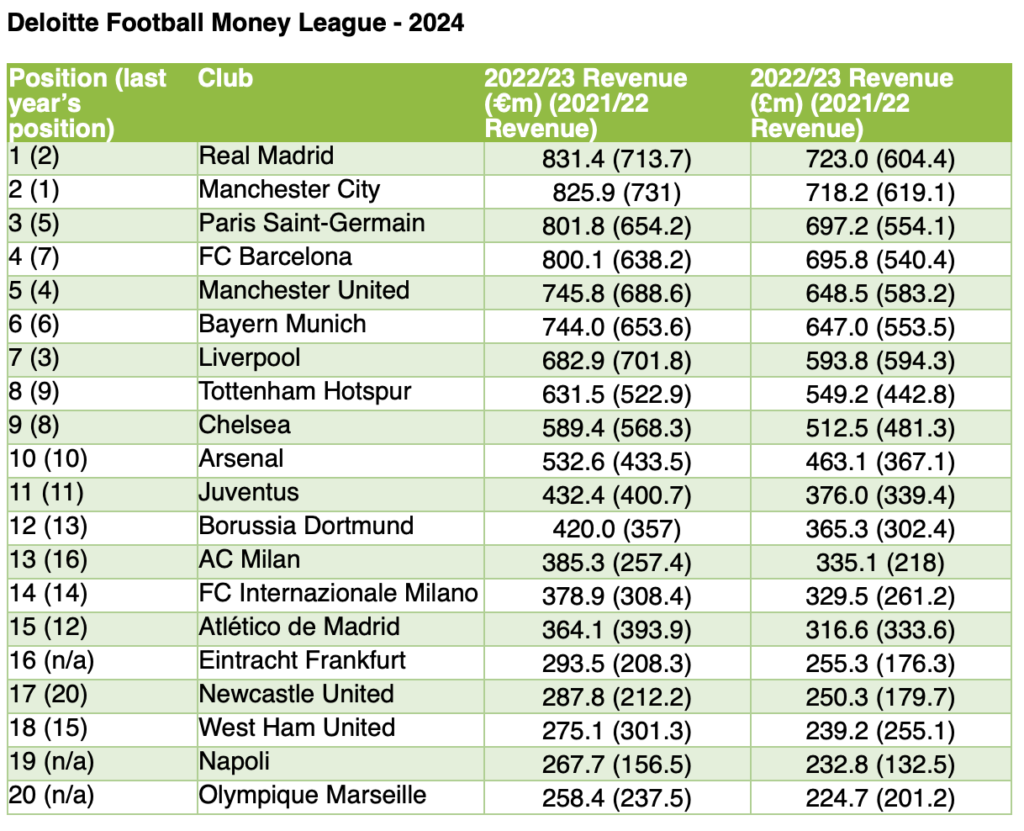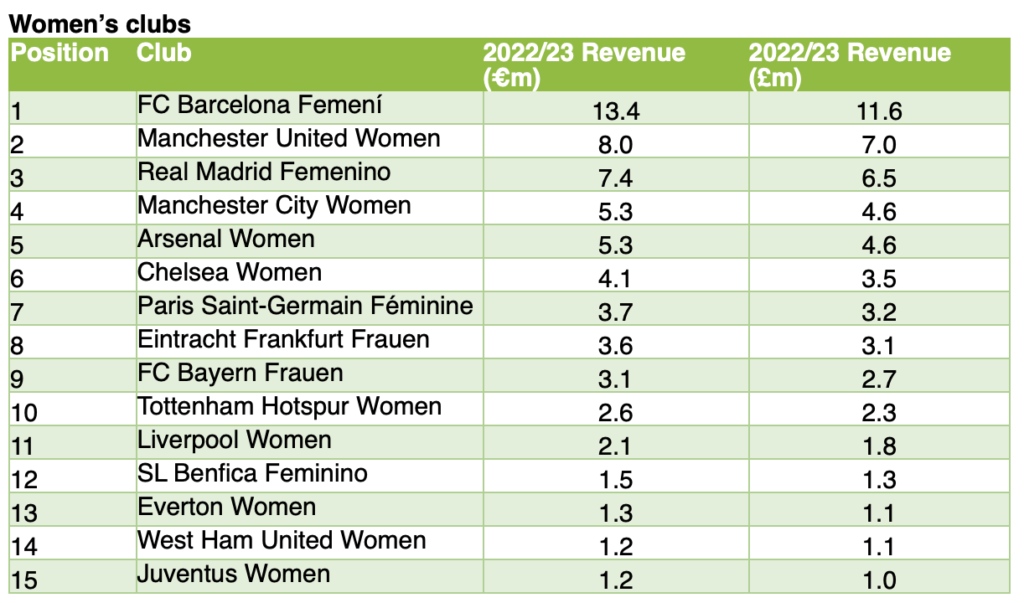January 25 – Real Madrid have reclaimed top spot in the annual Deloitte Football Money League, beating last year’s league leader Manchester City by a slim €5 million.
PSG broke into the top three positions followed by Barcelona on €300 million – €31 million behind their Spanish rivals.
Manchester City’s cross-town rivals Manchester United have dropped to fifth place (€746 million) and are now truly confirmed as Manchester’s second team, not only on team performance but also by being ahead by a substantial €80 million.
Eight of the top 20 teams are in the English Premier League. The gulf between the top four clubs with revenues over €800 million, to the bottom five in the top 20 with revenues under €260 million is immense, perhaps unbridgeable.
The money league is based on revenues reported for the 2022/23 season which saw matchday and commercial revenues surge across Europe.
Deloitte highlights cumulative record revenues of €10.5 billion, an increase of 14% compared to the €9.2 billion in 2021/22.
Out of the top 20 clubs, 17 clubs reported a year-on-year increase in commercial revenue – Liverpool were one of the losers dropping from third to seventh with a revenue decrease of almost €20 million. Atlético de Madrid and West Ham United were the other two clubs to report a revenue decline.
Tim Bridge, lead partner in Deloitte’s Sports Business Group, said: “Another record-breaking year for Money League clubs represents the ongoing financial might of the football industry. A high demand for live sport is pointing towards further growth for commercial and matchday revenues, in particular.
Deloittes also produced a table of the top 15 women’s clubs across Europe average.
Barcelona (€13.4 million) top the ranking followed by Manchester United (relatively late entrants to the women’s professional game), Real Madrid and Manchester City.
Average revenues generated stood at €4.3m in the 2022/23, up 61% year-on-year.
Amy Clarke, women’s sport lead in Deloitte’s Sports Business Group, commented: “A rise in the number of women’s matches playing at clubs’ main stadia boosted matchday revenues, while increased viewership and individual partnerships helped to accelerate the commercialisation of the game.
“Women’s football is beginning to tell the tale of growth, but that growth is not confined by a single business model. Each club is exploring its own unique way to maximise revenues within the current structure of the game.”
Contact the writer of this story at moc.l1735873770labto1735873770ofdlr1735873770owedi1735873770sni@n1735873770osloh1735873770cin.l1735873770uap1735873770



